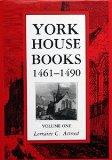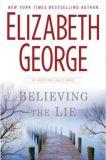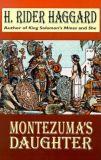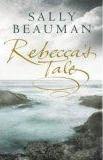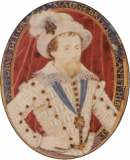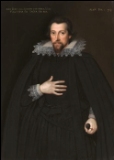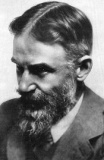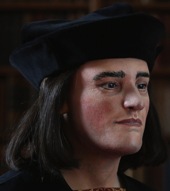Literary Trivia
Elizabeth George, Believing the Lie, Hodder & Stoughton, 2012, pbk ISBN 978 1 444 7 05980
H. Rider Haggard, Montezuma’s Daughter, first published 1896, various later editions as well as ebook formats are available.
Checking the new Elizabeth George Inspector Lynley novel for pro-Richard III comments, I was rather disappointed. These comments have not appeared recently, probably since Inspector Lynley’s wife Helen was murdered and hasn’t been there to tease him about his obsession or to wonder why he likes going to a place near Leicester in August. However I did find this which shows a Shakespearean look:
Valerie is looking at her husband, Bernard. “She glanced at him then. Such a little man, actually, he was shorter than she by nearly five inches. Small, a little delicate, mischievous looking, cocky, grinning … My God, she thought, all he needed was a hunchback, a doublet, and tights. She’d been as easily seduced as the Lady Anne.”
There may be more in this very enjoyable book. I couldn’t put it down for all the twist.
The other day, I was channel surfing and came to Lifestyle channel, Country House Rescue. One episode featured a place in Norfolk that I knew. Checking it on a map of Norfolk I saw it was near Bungay, and thought “that’s where Thomas Wingfield lived”. Funny how names from books first read in childhood are never forgotten! When I was 10 one of the teachers at my school was talking about Cortez and Mexico etc, and told us that if we wanted to know a little more we would enjoy Rider Haggard’s book Montezuma’s Daughter, something my father obligingly bought for me. It must have been one of the first “grown-up” books I read, but Thomas Wingfield became a permanent hero! Checking my copy again I loved this paragraph, where Thomas says:
Long ago the heiress of the Wingfields married a De La Pole, a family famous in our history, the last of whom, Edmund, Earl of Suffolk, lost his head for treason when I was young and the castle passed to the De La Poles with her.
Not really Ricardian, but not surprising because Haggard lived in Norfolk/Suffolk and would have been aware of the history of the county. But I was happy to know that my hero Thomas was related to Richard’s sister Elizabeth.
